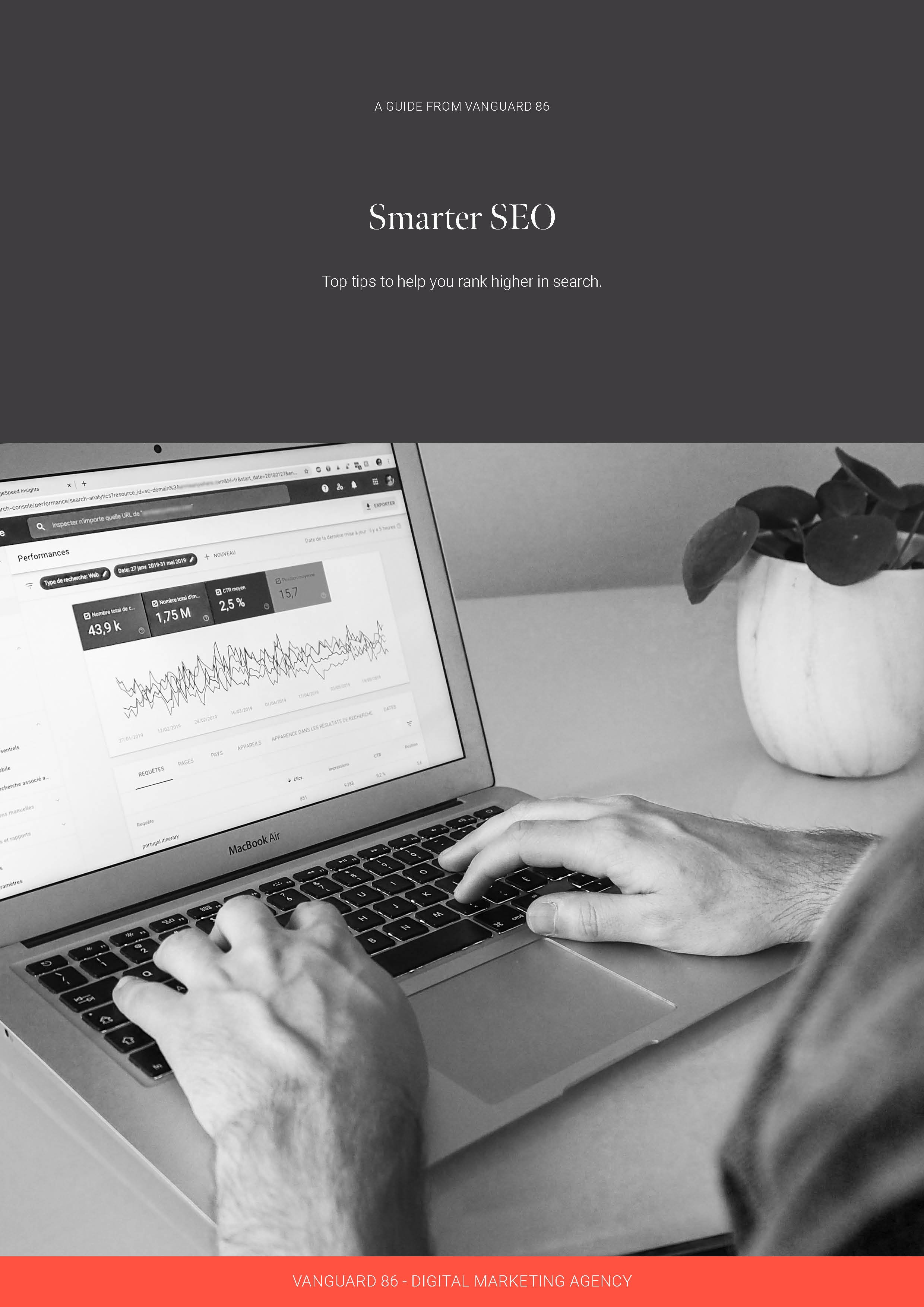Why does my Google search rank keep changing?
After three months of implementing the best SEO practices on your website, you decide to check a keyword you've worked hard to rank for. But to your surprise, it’s dropped a spot since yesterday. The following day, it shifts again. No matter how often you check, the ranking doesn’t stay in one place, bouncing around the SERP (search engine results page). This is doubly frustrating because you’re investing a fortune in search engine optimisation.
You may even ask a friend to search for your keywords and they end up seeing a different result entirely. Why is this?
It’s a good question and a common problem. In this day and age, Google rank matters more than most people realise. The top result in a Google search gets around a 30% higher click through rate. So if your main keyword is searched 5,000 times a month, not being number one means you’re missing out on 1,700 website visitors a month.
To help answer why you might see a temporary or long-term drop when you search for your keyword we’ve compiled a list of reason as to why you might see different results.

Your location
Where you are physically located can have a significant impact on your search results. If you’re in a different city or town from someone else performing the same search, Google will often show you results tailored to your immediate location. This is because Google aims to provide the most relevant information to the searcher, and geographic relevance is a big part of that. Devices like your phone or laptop often share their GPS or location settings with Google, helping Google personalise search results by displaying businesses, services, and information specific to your area.
Your search frequency
The frequency with which you search for specific terms can affect what Google shows you. If you search for your company or services frequently (maybe to show a client or check your rankings), Google starts to learn your browsing patterns. Over time, it might assume that you have a preference for certain pages and show them higher in your personal search results, even if they aren’t ranked as highly for other users. This happens due to Google’s behavioural analytics, which track and personalise results based on your browsing and search habits.
Similar websites
Similarly, if you often check out competitor websites, Google might start including those sites more prominently in your results. This effect works both ways: if you frequently visit a competitor’s page, Google may view it as a site of interest to you and increase its visibility in your search results. Conversely, if someone else frequently visits your site, they’re more likely to see your site ranked higher. Google aims to learn from your interests, so your search results could become skewed over time based on your browsing history.
Increased competition
It’s possible that you genuinely have slipped a place or two for a keyword, meaning competitors have likely stepped up their SEO efforts. While your agency may be doing everything within your budget, competitors might be investing more resources into content marketing, link building, technical SEO, and other strategies that push them higher than you. SEO is an ongoing process, and even small changes in your competitors' activity can nudge your site up or down in rankings.
Changing algorithms
Google’s ranking algorithms are incredibly complex and constantly evolving. These algorithms determine which pages are most relevant for each search query, Google releases these updates to improve search accuracy and user experience. When these algorithm updates happen, they can shake up search rankings quite drastically and quickly. Your SEO strategy needs to adapt to these changes, so that your pages maintain high rankings for years to come.
User behaviour patterns
Google also factors in user behaviour, such as the click-through rate (CTR) and dwell time (how long someone stays on a page after clicking). If people are frequently clicking on your page and spending time there, Google interprets this as a sign of quality, which could improve your rankings. But if user engagement drops—whether due to outdated content, slow load times, or a poor mobile experience—your ranking might slip as Google aims to promote pages that users find helpful and engaging.
I’m paying Google money, surely I should rank higher?
If you’re paying Google money then we’re no longer talking about your organic search ranking. People that pay for Google will have a little green box with ‘Ad’ next to their result. This shows they’re using Google AdWords and are paying Google to have their website appear as high as possible.
What’s the difference between organic Google ranking and Google AdWords?
Your website’s organic placement in Google is purely based on your search engine optimisation. All the traffic you get is free because your website is the most relevant result in Google’s eyes. With AdWords your website is still relevant, but you’ve given it a financial boost to get as high to the top as possible. You will pay Google every time someone clicks on your advert.
Sometimes you’ll pay a couple of cents for each click, sometimes it will be upwards of $10 or $20. The actual amount depends on your bid amount and the level of competition for that keyword. Bidding the most amount of money doesn’t always mean you’ll get to the top advertising spot either.
I just want to be at the top of Google, tell me the secret!
As a Google Partner Agency tasked with getting client website’s as high up Google as possible, we do get asked this a lot! Even as an agency we’re guilty of asking Google the same question.
Imagine if there were one simple trick to getting to the top of Google, like a switch on your website you turn on and it’s suddenly optimised perfectly and jumps to the number one spot immediately. That would be ace, wouldn’t it?
But you’d suddenly have every website in the world - the tens of millions of them there are - all do exactly that without being completely relevant to the search term. How would we decide who got the top spot then?
So how do I rank higher in Google?
Your industry might be easier than others due to low competition, so you might have an easier job than the next business. Even if you do rank highly, you’ll probably inspire your competition to start investing in their search engine ranking so you’ll have to put in more work to stay at the top.
Google is the new texpo, but harder. At an expo you pay extra to get better placement, a bigger stand and a better display. One year you’re the biggest and the best and you get all the attention, then the following year your competition have done the same because they saw how successful you were. What happens the following year? You reinvest in virtual reality, interactive displays and you get the edge. But the year after that you can’t move for people with VR headsets.
If you plan on acquiring new leads for your sales team through your website or increasing online sales on your ecommerce store, then your Google search ranking matters.
Want to find out some simple ways you can use effective SEO tactics to achieve a higher Google search rank for your website? Get our SEO audit here!
Download your free guide to Smarter SEO
Good SEO can mean the difference between your business being found, or you being lost in the growing mass of online resources. This guide is designed to help you rise above your competition.
Download now




